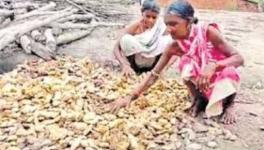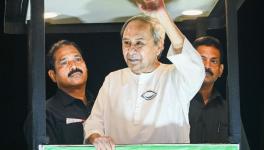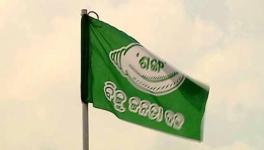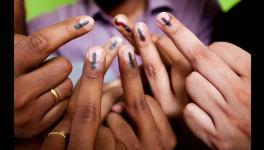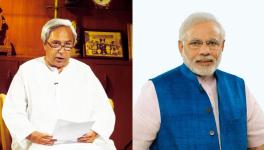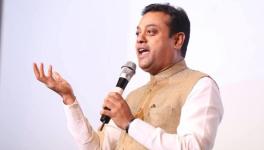COVID Deaths in Media: Naveen Patnaik Walks the Talk on Compensation
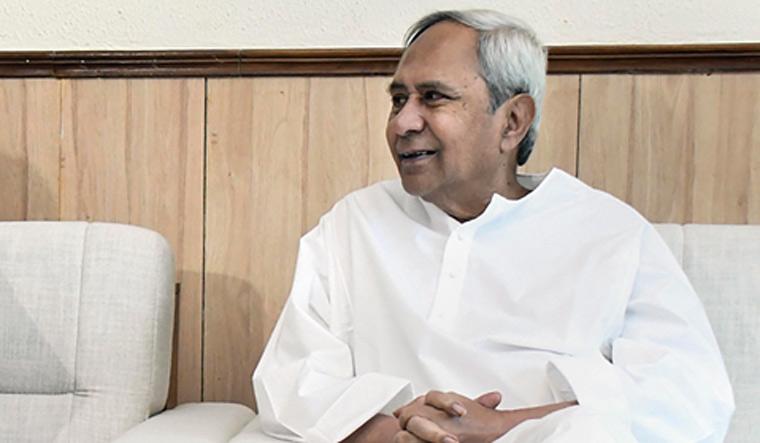
The role played by the media in providing information to people about the outbreak of COVID-19 and its spread has been crucial for preventing its progression and protecting hundreds of lives. Visits by journalists to places, where disease and infection is rampant for gathering, reporting and transmitting information, are fraught with life- threatening risks.
A peep into our history educates us about the instructive roles played by some of our leaders to deal with highly infectious diseases. Mahatma Gandhi was one such leader who, apart from being a good communicator, was a journalist who made people aware about the outbreak of epidemics and the measures needed to stem the spread. While in South Africa, he founded a newspaper, Indian Opinion, in 1903 and when plague broke out in Johannesburg in 1905, he asked a question: “What is the duty of the press on such occasions"? He answered this by saying that the duty of the press was to notify the incidence of plague as soon as it occurred for information of the public so that they remain prepared to meet the hazard.
In a great example of the duty and responsibilities of a journalist in the face of challenges posed by the spread of infectious diseases, Gandhi himself put his life at stake by visiting plague-affected people, reporting news and providing information about the extent of spread of the disease and measures needed to check it.
Such insights are critical in the context of COVID-19, which is spreading at a rapid rate across the world. An article, ‘Winning the battle, but not the war’, by Jennifer Thorley in medical journal, Lancet, in August 2020, states that “although COVID-19 certainly marks a unique event in world history, the journalist and public health researcher explains that five other infectious diseases have also been declared Public Health Emergencies of International Concern since the SARS epidemic of 2003—H1N1 influenza in 2009, polio in 2014, Zika virus in 2015, and two outbreaks of Ebola (one in West Africa in 2014 and one in the Democratic Republic of the Congo in 2018)—all with the potential to spread worldwide under the right set of circumstances.”
People, society and humanity are critically dependent on journalists for much-needed information on the novel coronavirus pandemic to raise awareness and understand how to deal with it.
In the context of India, it is well known that the World Health Organisation declared COVID-19 as a pandemic on March 11, 2020. By that time, the virus had spread in many Indian states. But the government of India, on March 13, declared that there was “no health emergency” for our country. Meanwhile, when Prime Minister Narendra Modi addressed the nation and announced a Janata curfew on March 21, he declared journalists and mediapersons as part of essential services and underlined that they would remain active during the lockdown.
It is worthwhile to note that with the onset of COVID crisis and its rapid spread across the world causing health, human and economic crises of gigantic proportions, governments in almost all the countries announced health insurance and compensation for doctors and ‘COVID warriors’ who constituted part of essential services.
However, while treating journalists and media people as part of essential services, governments did hardly anything to declare financial package or compensation for them, their families or next of kin in the event of death due to the disease. A singular exception to this is Odisha chief minister Naveen Patnaik who, on April 27, announced a compassionate assistance of Rs 15 lakh for the family of working journalists who die due to coronavirus infection.
The importance of such an announcement should be appreciated in light of the fact that in April, COVID had not at all spread at an alarming pace in the state. Even as total COVID positive cases in Odisha were only 118 and the number of deaths was less than seven, Patnaik understood the magnitude and severity of the problem and the significant role played by journalists on the field from both print and electoral media in disseminating information.
“Coronavirus has created a huge health issue across the globe and journalists play a major role in creating awareness among the masses. They are working in a difficult situation to perform their professional duties and that if any journalist dies due to coronavirus, his/her family members will get ex-gratia of Rs 15 lakh,” he said.
Patnaik also walked the talk July31, and sanctioned ex-gratia amount of ₹15 lakh each to the families of journalists, Priyadarshi Pattnaik and K.Ch. Ratnam, who succumbed to COVID while covering and reporting on the virus. Patnaik was working for prominent Odia daily, The Samaja, in Ganjam district, while Ratnam served Eenadu, (News Today Pvt. Ltd.) in Gajapati district.
PIL in Karnataka
For a deeper understanding of the idea of compensation announced by the Odisha CM for journalists losing life because of COVID, it is worthwhile to refer to a public interest litigation (PIL) filed by Jacob George of Bengaluru in the Karnataka High Court, pleading for compensation to media personalities who die of COVID-19.
The PIL was filed in May and on May 15a division bench of the high court observed in its order, “...just like police, doctors, nurses, government personnel and others who are carrying out essential duties, in the same way, journalists and other media personnel are on the field so as to disseminate and convey correct information to citizens about the impact of the pandemic and other information from the world over,”
The bench also noted that “Mediapersons have to risk their health and life to be on ground zero, at hotspots and in containment zones so as to collect information to convey it to the public, either through the press or electronic media for responsible reporting, and also to ensure that the distress of the people and their despair are made known to the government and its instrumentalities so that suitable action is taken for the containment of the virus.”
It further made a pertinent observation and stated that “The media, in the present health crisis, should be responsible in reporting true and correct facts and not exaggerating or sensationalising to create fear or panic amongst people.”
Therefore, the bench in its order observed that “the role of journalists and media personnel can neither be underestimated nor undermined during COVID-19 pandemic” and directed “the Central and State governments to consider as per the law, a representation made by a petitioner seeking payment of compensation in case a journalist or media personnel dies of the infection.”
It is, therefore, quite significant that what Patnaik did in April for the cause of journalists in Odisha, was now sought to be done through a PIL in Karnataka and rest of India.
Mumbai Press Club Demand
It is noteworthy that the spirit of the decision by the Odisha chief minister is embodied in the demand being made by some press. For example, an article, “Who Will Write about Us if We Fall Sick: The Vulnerability of Journalists in the Time of COVID 19”, authored by Shweta Desai and published in News Laundry, says: “The Mumbai Press Club has also demanded the state government include the category of working journalists under essential service workers and provide them with a protection cover of Rs 50 lakh as health insurance.”
Soma Basu, a journalist with The Hindu, in her piece, “Take care of yourself too, fellow journalists” on May 1, wrote: “Journalists out there on the field run the risk of exposing themselves to the highly contagious virus, much like our other foot soldiers: sanitation workers, police personnel and all those in the healthcare sector, rendering selfless service to combat the COVID-19 pandemic.”.
Governments should heed such appeals and grant financial packages to journalists and their families in case of death on duty.
If we go beyond the frontiers of India, we find that Bangladesh Federal Union of Journalists (BFUJ), along with its affiliate Dhaka Union of Journalists (DUJ), issued a statement on May 9 following an emergency meeting and observed that COVID-19 had so far killed three newsmen and demanded compensation of at least Taka 50 lakh for every deceased person and support for the treatment of those infected by coronavirus.
UNESCO Solidarity
Even the UNESCO has deplores lack of financial protection for journalists covering the pandemic. Director General Audrey Azoulay in a message stated: “Journalists are on the frontline and put their safety in peril every day to bring citizens reliable and verified information on the pandemic. Their contribution has been invaluable for us all. But many lack protective equipment and access to healthcare, and some have been made to pay the ultimate price for their coverage of the health crisis. I stand in solidarity with media workers and their families during this demanding and perilous time.”
In this backdrop, the Odisha chief minister’s gesture stands out and deserves appreciation.
The writer was OSD and Press Secretary to former President of India, K.R. Narayanan. The views are personal.
Get the latest reports & analysis with people's perspective on Protests, movements & deep analytical videos, discussions of the current affairs in your Telegram app. Subscribe to NewsClick's Telegram channel & get Real-Time updates on stories, as they get published on our website.










